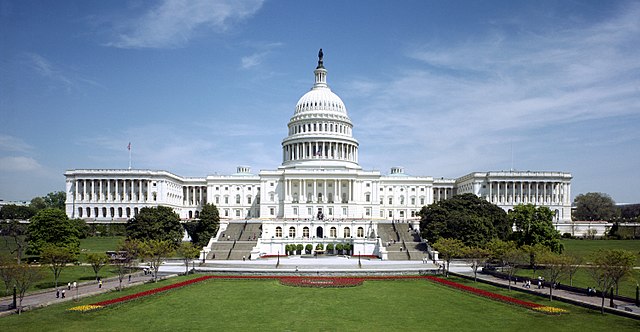Opinion | Democrats should rely on young people to navigate political crossroads
July 14, 2021
I’m angry. I’m angry that we’re one of the richest nations in the world, but one in 10 families experience food insecurity. I’m angry that the ocean is literally catching on fire and hundreds of heat-related deaths are not enough for our legislators to buck corporate interests and pass comprehensive environmental legislation.
I’m angry about gag rules and redlining and police brutality and trickle-down economics. I’m angry that these remain persistent, seemingly unsolvable problems. And I’m worried that as long as this tumultuous political climate exists in America, they will remain unsolved.
I grew up in a little rural town and volunteered for its cramped Democratic party office. I was raised by fierce party elders who exposed me to grassroots organizing as well as the inner workings of government. It was only until I arrived at college that I began to consider a reality of my work with the local Democrats — they rarely got elected.
This is not an uncommon story and it reflects a larger issue. Just as we struggled to get our neighbors on school boards and turn our state legislature seats blue, Democrats are facing a national crossroads and it’s not the one most people think.
Yes, the party has often had problems with branding. Yes, the party has often become overwhelmed by its ideological diversity. And yes, the party has often succumbed to so much in-fighting that they forget to respond when Republicans call them communists. But Democrats are losing, above all else, because the standards have sunk so low that we don’t even know how to react.
I remember learning the platforms and planks of both parties in eighth grade debate class. Back in that classroom, I felt like we were contributing to meaningful dialogue about the future of our nation and how each party wanted to get there. It doesn’t feel like that anymore.
It’s not the same national debate any of us were raised on. It’s not about a bigger or smaller vision for government. It seems meaner, dirtier. I can’t tell if it’s because we honestly have reached a polarized point of no return, or if it’s because I grew up.
From false election fraud claims to voter suppression laws, we’ve seen just how much of our democracy people are willing to give up in order to stifle any progress. But Democrats are playing like it’s still a fair fight. If American politics is the game Monopoly, Democrats are shuffling around the board in their tiny metal car while Republicans take off with the fake cash.
We can continue our clearly non-optimal game plan of clinging to the same moderate candidates, or we can use this crucial moment as an opportunity. I’m talking about social democracy. Social democracy calls for the government to enact some socialist policies through the democratic process, with the goal of controlling prices of essential services, such as medicine and education. The idea is that we will merge into democratic socialism, an economic system within a democratic government where the means of production are socially owned.
Democrats need to be pursuing a more progressive agenda and they need to do it by listening to young people. The young people of the Democratic party are so often the ones putting in the most work for the littlest reward. We dedicate hours and hours to candidates we compromised on, only for them to abandon the progressive policies that gave us solace when they were elected. Campaigns, legislators and organizations will gladly accept our unpaid labor, but don’t care about what we have to say.
As a young person myself, I am often called naive for the changes I wish to see. I think it is more naive to imagine that everything could and should stay the same. So why should we count on young people? Young people are angry and hungry for change, but many of us do not feel the same ties to the current socioeconomic system that older generations do. This means we don’t mind throwing out what’s not working.
I believe in universal health care, access to food and housing, a higher minimum wage, unions, environmental conservation, reproductive rights, re-funding communities and affordable education. I believe that patriotism should be based on the idea that we can always do better and be better for one another. That when socioeconomic justice is present, everyone benefits. That our criticism of this country is not because we hate it, but because we love it.
And I’m not alone. Give young people political agency and you’ll see. What better time to reimagine our nation?
India writes primarily about politics for The Pitt News. Write to her at [email protected] or follow her on Twitter @indialarson_.









